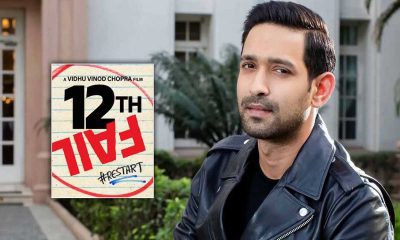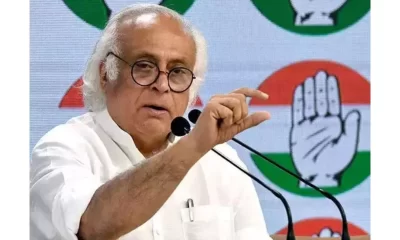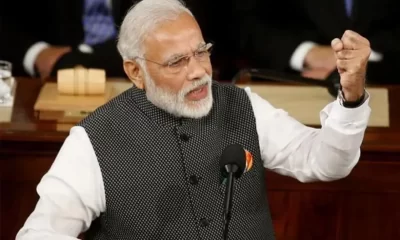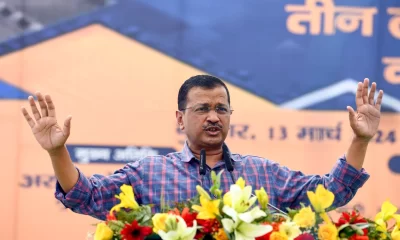India News
Doklam standoff resolved: India starts pullback, China insists it will continue patrolling
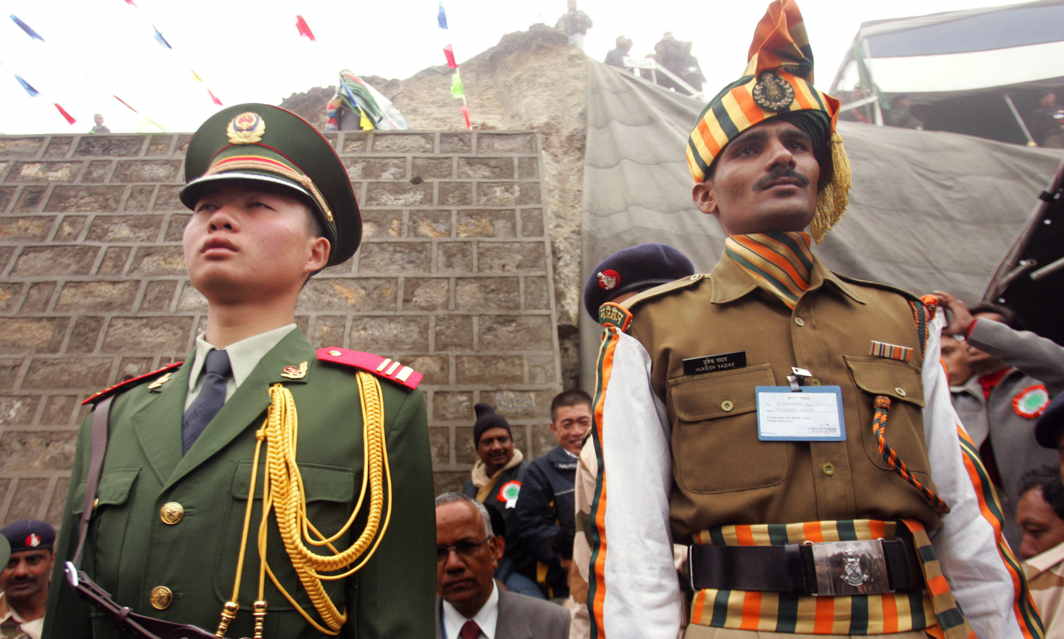
[vc_row][vc_column][vc_column_text]India’s objection was to China constructing a road in Doklam as it would have changed the status quo and rendered India vulnerable in the ‘chicken’s neck’ area – the narrow strip between Nepal, Bhutan and Bangladesh – that connects northeast India with the rest of the country.
Almost three months of the tense standoff between Indian and Chinese troops at Doklam on India-Bhutan-China tri-junction has been resolved peacefully through diplomatic means, with both sides announcing an end to the dispute.
The development comes days before Prime Minister Narendra Modi’s planned visit for a BRICS meet from September 3-5 at Xiamen in China.
India on Monday announced ‘expeditious disengagement of border personnel’ in a press release titled “Doklam Disengagement Understanding”.
“In recent weeks, India and China have maintained diplomatic communication in respect of the incident at Doklam. During these communications, we were able to express our views and convey our concerns and interests. On this basis, expeditious disengagement of border personnel at the face-off site in Doklam has been agreed to and is on-going,” said the MEA in a press statement.
Chinese foreign ministry spokesperson Hua Chunying said that India has pulled back its border personnel and equipment from Doklam, according to media reports. “China has confirmed that Indian troops and equipment have all withdrawn to the Indian side of the border area in Doklam on Monday afternoon. China will continue to exercise its territorial sovereignty in accordance with historical conventions,” Chunying was reported as saying at Monday’s regular press conference.
“The Chinese government highly values its friendly relationship with India. We hope India can fulfil the historic agreement on the border and safeguard the stability of the border area with China,” Chunying added.
When asked if there had been a “mutual disengagement” of troops, the Chinese spokesperson said patrols will continue in Doklam, but that “in accordance with the changes of the situation on the ground, China will make necessary adjustments and deployment in accordance with those changes”. No details were offered. China did not comment on whether it will renew efforts to construct the road.
Indian and Chinese troops have been caught up in a face-off at Doklam since June when China began extending a motorable road on the Doklam plateau that is claimed by both Bhutan and China and is strategically significant for India: it would give China ready access to an area close to the narrow Siliguri corridor that links northeast India with the rest of the country.
China has been building up strategic infrastructure in the Doklam plateau region, upgrading road from Lhasa to Yadong, across the border from Doklam, which allows the 500-km journey to be made in just seven hours.
When China encroached in Doklam to build a road, Indian troops, acting in accordance with India’s foreign policy coordination treaty with Bhutan, crossed on June 16 into Bhutanese-claimed territory and, forming a human chain, physically blocked the movement of Chinese border guards. India also positioned two bulldozers in the Doklam bowl to undo any road construction by the Chinese.
On June 26, Beijing invoked an 1890 agreement between China and Great Britain that specified Mount Gipmochi as the border junction.
Three days later, Thimphu cited agreements in 1988 and 1989 not to disturb the status quo.
The next day, New Delhi pointed out that Beijing had agreed in 2012 to finalise the border tri-junction consultatively and that ‘unilaterally determin[ing] tri-junction points is in violation of this understanding.’
After Indian troops intervened, there were repeated threats by the Chinese media and strident positions taken by official Chinese diplomats. Chinese state-controlled media launched a propaganda war against India, even threatening New Delhi with war. India refused to get drawn into a squabble and maintained that it will defuse the crisis through official diplomatic channels. China kept asking India to withdraw its troops for any meaningful dialogue to take place.
However, India did not respond to China’s verbal attacks insisted on finding a peaceful solution to the issue through dialogues, even as incursions by Chinese troops continued in other sectors and the two sides even came to blows and scuffle involving stoning in Ladakh.
Media reports today interpreted the decision taken by both countries as a victory of India’s diplomacy, which was praised by other international powers as well. [/vc_column_text][/vc_column][/vc_row]
India News
Sunita Kejriwal, Atishi meet Arvind Kejriwal in Tihar jail, discuss Delhi governance
AAP had earlier accused the Tihar jail administration of cancelling Sunita Kejriwal’s meeting with Arvind Kejriwal.
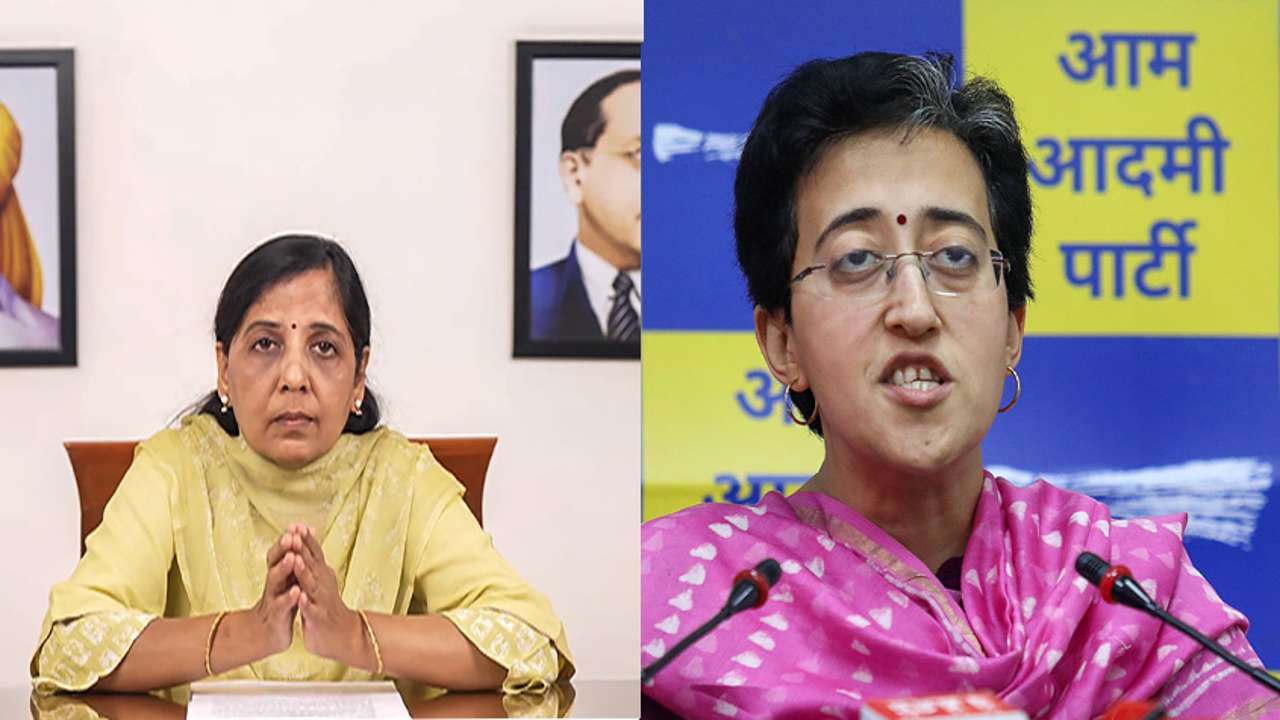
Delhi Chief Minister’s wife Sunita Kejriwal and AAP minister Atishi met Arvind Kejriwal in the Tihar Jail today. After their meeting, both dicussed the specifics of their meeting with CM. They said that the jailed CM was asking about the Delhi governance matter.
Kejriwal is expected to see Punjab Chief Minister Bhagwan Mann tomorrow.
Atishi, who is in charge of six departments in the Delhi Cabinet, said, she visited with the Chief Minister. When she asked how he was doing, he skipped answering her, rather he asked how the work is going in Delhi. He said, not to ask about his condition. During their meet, the Delhhi CM also asked about the school kids that are they getting books? Does Mohalla Clinic have access to medications? Atishi continued.
The Chief Minister said that as summer is approaching, Delhi shouldn’t have any water-related issues. He sent a message to the women of Delhi, saying he is planning to give them Rs 1000.
The Aam Aadmi Party had earlier claimed that Kejriwal’s wife, Sunita Kejriwal, was not allowed to see him. However, in a statement, Delhi minister Atishi said that Sunita Kejriwal will see her husband later on in the day and that two people were granted permission, but Sunita ji’s was cancelled. Athishi said, every day, new laws are enacted, she did not have permission, but when their lawyers won this legal battle, she was permitted to see Kejriwal.
AAP’s campaign for the Lok Sabha in the national capital and other states will be led by Mrs. Kejriwal, the party said. The campaign kicked off with a roadshow to support AAP’s candidate for East Delhi, Kuldeep Kumar. This is the first time that Mrs. Kejriwal has entered the political sphere actively.
Party leader Sanjay Singh asserted last week that Atishi’s name was added to the list of visitors for Mr. Kejriwal following the name of Delhi Health Minister Saurabh Bharadwaj.
Meanwhile, in the Delhi Liquor Policy case, Arvind Kejriwal was taken into custody in March. On March 21, the Enforcement Directorate (ED) detained him in connection with a money laundering case. In the same case, Manish Sisodia, his former deputy, is jailed.
India News
FIR filed against YouTube channel in Punjab for defaming AAP MP Raghav Chadha
The case was filed on the complaint of the son of an AAP candidate from the Ludhiana Lok Sabha seat.
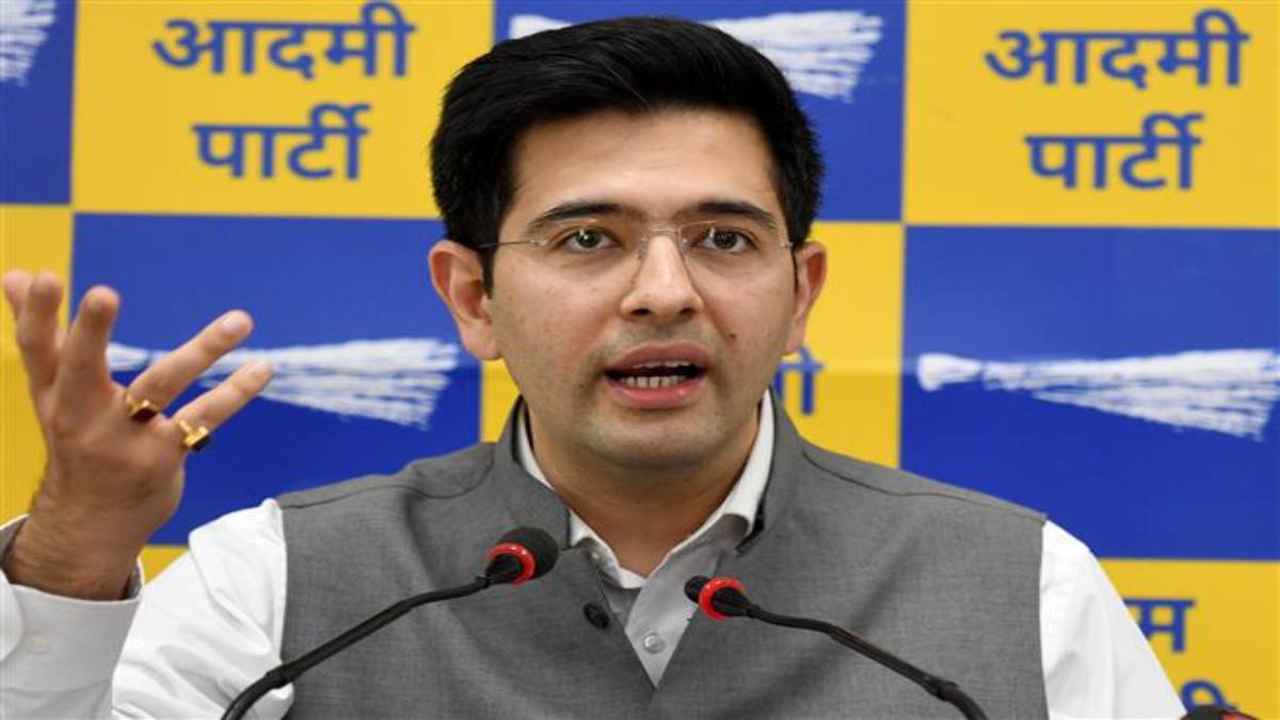
A First Information Report (FIR) has been filed by Punjab Police against a YouTube channel for allegedly linking Aam Aadmi Party (AAP) MP Raghav Chadha to wanted man Vijay Mallya.
The AAP candidate for the Ludhiana Lok Sabha constituency, Ashok Pappi Prashar’s son, Vikas Prashar, filed a formal complaint against the YouTube station Capital TV. The complainant held the channel accountable for airing misleading and defamatory content.
The statements/contents of false videos on Capital TV channel and others shall harm the public peace and harmony…and is likely to promote enmity between different groups in the country on grounds of religion, caste, race and community, the complaint said.
In his complaint, Vikas allegedly claimed that the YouTube channel was disseminating misleading information and that it was defaming Raghav Chadha by equating him with Mallya.
Vijay Mallya fled to the UK after taking public money, and similarly, a Rajya Sabha member left for England, claiming it was for eye treatment, according to the FIR, which noted claims made by the YouTube channel.
The AAP leader will reportedly get a vitrectomy in the UK to save the retina from detaching from the eye earlier. According to the research, this disorder, which is characterized by the formation of tiny holes in the retina, is very dangerous for vision and must be treated immediately to prevent irreversible damage.
The channel referred to Chadha as a Khalistani supporter following his encounter with UK MP Preet Gill, according to the complaint.
Section 153A of the Indian Penal Code (IPC) deals with inciting religious hatred among various groups, Section 469 deals with forgeries, and Section 505 deals with making statements that could incite public disturbances.
The FIR also contains Section 66 of the Information Technology Act, which addresses offenses involving computers.
India News
Security forces arrest 14 Pakistani nationals with around 86 kg of drugs, worth Rs 600 crore near Gujarat Coast
The Indian Coast Guard took to X and wrote in a breathtaking overnight operation, Indian Coast Guard undertook an intelligence-based anti-narcotics operation at sea on 28 Apr 24. About 86 kg of narcotics which is worth Rs 600 crore has been apprehended along with the arrest of 14 Pakistani nationals.
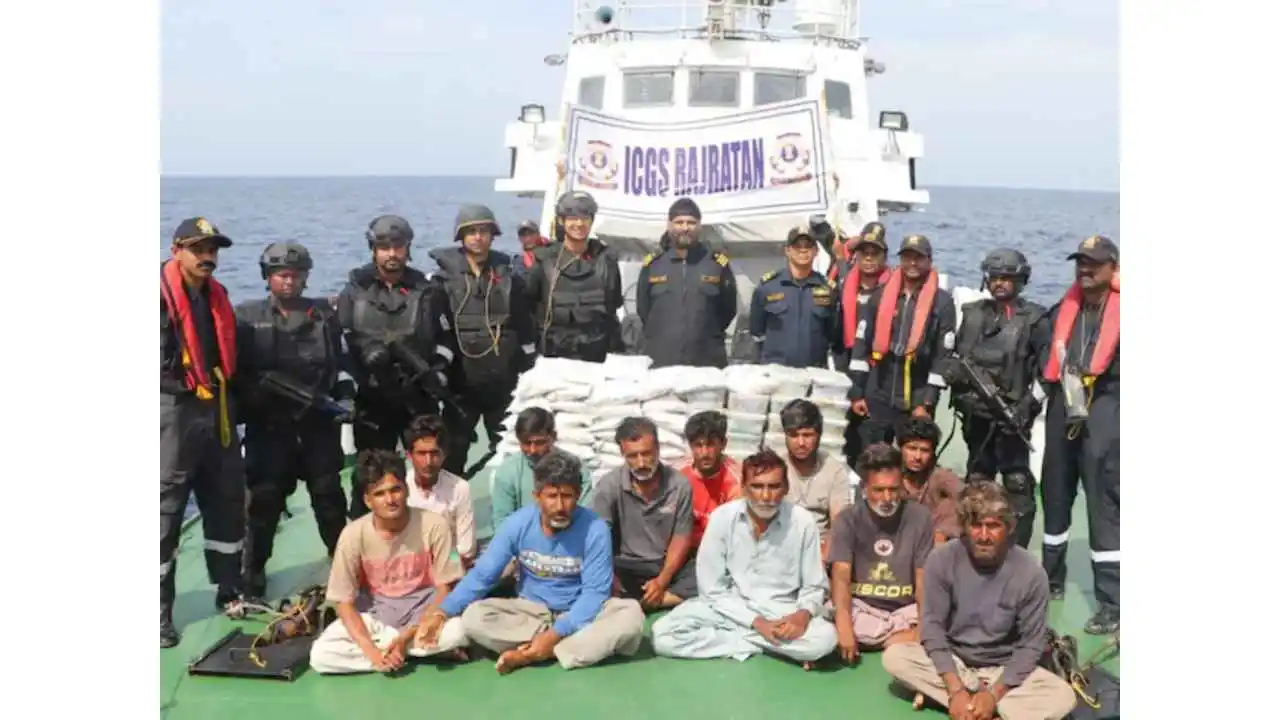
The Indian Coast Guard on Sunday announced the interception of a Pakistani vessel laden with 86 kg of narcotics valued at Rs 600 crore. Acting on intelligence, a joint operation involving the Indian Coast Guard, the Anti-terrorism Squad (ATS), and the Narcotics Control Bureau (NCB) was launched to combat drug trafficking in the area.
The operation was carried out by the agencies based on intelligence inputs received in the last few days. The Indian Coast Guard took to X and wrote in a breathtaking overnight operation, Indian Coast Guard undertook an intelligence-based anti-narcotics operation at sea on 28 Apr 24.
About 86 kg of narcotics which is worth Rs 600 crore has been apprehended along with the arrest of 14 Pakistani nationals. The operation was an epitome of inter-agency coordination wherein the Indian Coast Guard Anti-terrorism Squad and Narcotics Control Bureau collaborated seamlessly which resulted in the successful operation.
The ships and aircraft of the Indian Coast Guard had been deployed on concurrent missions to carry out the operation. ICG ship Rajratan, which had Narcitics Control Bureau and Anti Terrorist Squad officials embarked, positively identified the suspect boat.
No amount of evasive maneuvering tactics and resistance employed by the drug laden Pakistani boat could save it from the swift and strong action of ICG ship Rajratan. This operation took place on the basis of a tip-off by the Indian Coast Guard, Narcotics Control Bureau and Gujarat Anti-Terrorist Squad in the Arabian Sea near the International Maritime Boundary Line.
The operation was the 2nd major anti-narcotics operation carried out by the security forces in the Arabian Sea in 1 month. Earlier on February 26, 5 foreign nationals were held off the Porbandar coast with 3,300 kg of narcotics, including charas. Recently a boat carrying 60 packets of drugs was seized and 6 Pakistani crew members onboard the vessel were arrested off the Gujarat coast in a multi-agency operation in March.
-

 Entertainment20 hours ago
Entertainment20 hours agoIbrahim Ali Khan makes Instagram debut, first post goes viral
-
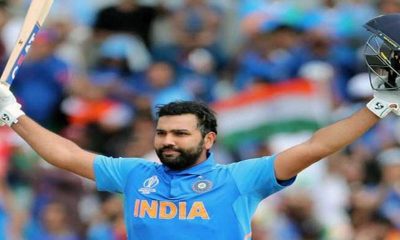
 Cricket news16 hours ago
Cricket news16 hours agoRohit Sharma to lead India at ICC Men’s T20 World Cup 2024, Hardik Pandya to be vice captain
-
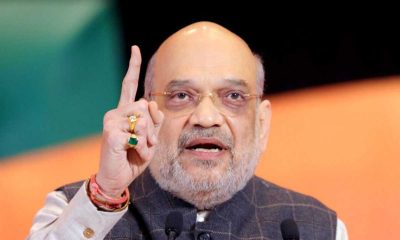
 Latest Politics News21 hours ago
Latest Politics News21 hours agoAmit Shah slams Congress over fake video, plays out actual video, says BJP supports reservation
-
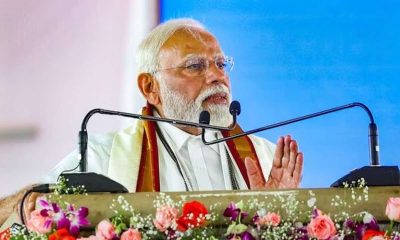
 2024 Lok Sabha Elections14 hours ago
2024 Lok Sabha Elections14 hours agoPM Modi says if Congress comes to power, they will bring out inheritance tax
-
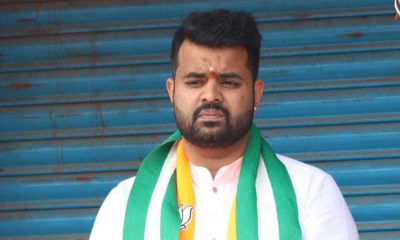
 Latest Politics News19 hours ago
Latest Politics News19 hours agoKarnataka MP Prajwal Revanna suspended from JDS over sex scandal

